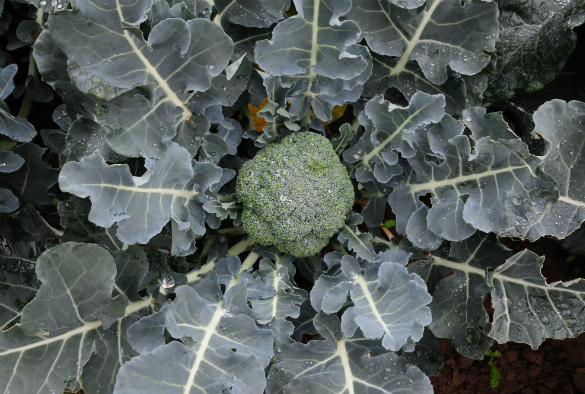
The University of Liverpool is part of a new multidisciplinary project aiming to improve the competitiveness of three important vegetable crops; broccoli, snap bean and tomato, in an organic and sustainable environment.
The recently started European project BRESOV (“Breeding for Resilient, Efficient and Sustainable Organic Vegetable Production”) aims to create a pipeline for crop improvement that will accelerate the production of high-quality organic seeds for breeders and farmers around the world.
With changing climatic conditions and a rapidly growing world population estimated to reach 9 billion by 2050, mankind faces the serious challenge of increasing food production by at least 70 %. The vision of BRESOV is to tackle this challenge by exploring the genetic diversity of three of the economically most significant vegetable crops belonging to very important botanical families (Brassicaceae, Fabaceae, Solanaceae). The consortium’s overall aim is to increase the plants’ tolerance to biotic and abiotic stresses and adapt the varieties to the specific requirements of organic and low-input production processes.
The University of Liverpool will play a central role as a member of the steering committee, and coordinator of Brassica research activity across the programme. Liverpool will use its world-class high-throughput genomics capabilities to uncover useful variation that can be used in organic breeding. This valuable information will then be used to improve stress resilience characteristics such as drought, water-logging, and saline tolerance. Alongside this work, the post-harvest performance and nutritional profile of the crops will be selected for improvement.
Dr Peter Walley, N8 AgriFood Tenure Track Fellow in Crop Genetic Improvement at the University’s Institute of Integrative Biology, said: “The organic market is growing fast, it is therefore essential to make available sufficient quantities of high quality organic seed to cope with increasing demand.
“The development and use of high-throughput genomics-based tools to assess genetic diversity within our assembled crop collections, along with phenotyping of desired traits under organic production, will enable the enhanced use and selection of genetic resources when combined with best on-farm management practices.
“The project outputs will contribute significantly towards developing context-specific climate-resilient organic production systems in the face of imminent climate change scenarios.”
BRESOV is funded with a total budget of € 5.96 million over the next four years by the European Commission’s current Research Framework Programme Horizon 2020. Another €1 million in total will come from the National Research Foundation of Korea (NRF) and the Chinese Ministry of Science and Technology (MOST).
The project, which is being coordinated by Professor Ferdinando Branca from the University of Catania, involves 22 partner institutions from ten European countries as well as China, Tunisia and South Korea.
For more information please visit: https://www.bresov.eu/